Shawn Fain, Raphael Warnock, and AOC Emerge as the Future of the Democratic Party
The convention in Chicago is both a forum for past fights and a showcase of tomorrow’s stars.
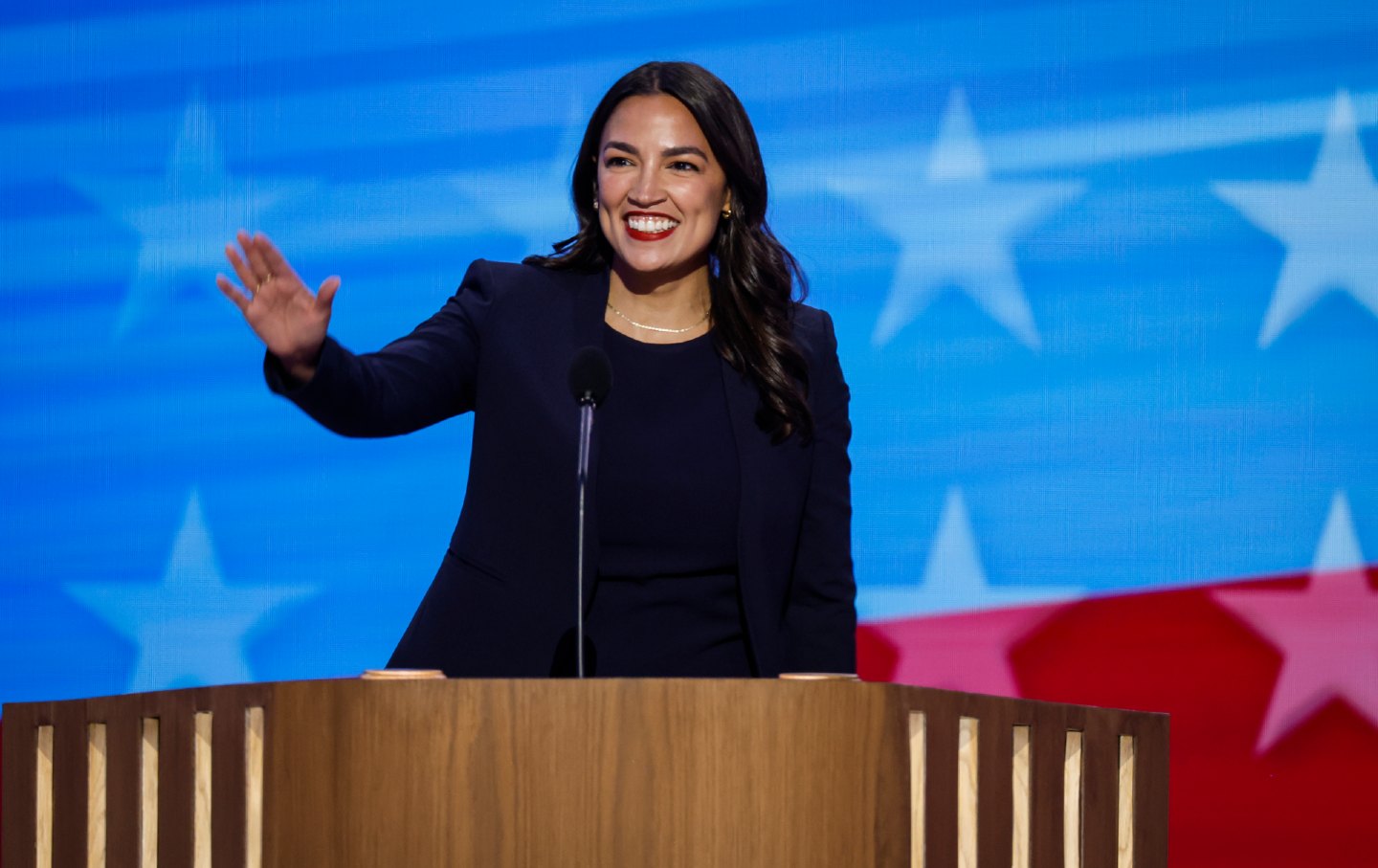
Anyone who thinks the two major political parties are basically the same just needs to watch the competing political conventions to understand what radically different creatures they are. The GOP is a monologue, whereas the Democratic Party is a cacophony of contending voices. At the Republican National Convention (RNC), it was striking how much the entire party had become a MAGA-echo chamber, with every major political figure adopting the rhetoric of Trump. Conversely, the Democratic National Convention (DNC) reflected a much more heterogeneous party, with centrists and leftists both coming out in support of Kamala Harris—but for different reasons and with varied accents and arguments.
Another way to frame the difference is that the RNC took place only in the present, while the DNC contained both the past and future of the party. At the RNC, the traditional convention invocation of the party’s heritage was at a minimum: scarce references to Abraham Lincoln, Theodore Roosevelt—or even Ronald Reagan. All that mattered was Trump. Even the living Republican nominees for president (George W. Bush and Mitt Romney) were excluded from the RNC.
The absence of the past—or any non-Trump future—at the RNC is a negative version of the DNC, where the stage was shared both by representatives of earlier iterations of the party (on the first night notably, Hillary Clinton and Joe Biden) and the emerging stars who represent the party’s future (notably Alexandria Ocasio-Cortez and Raphael G. Warnock). The first night also featured many labor leaders, most notably Shawn Fain, the president of the United Automobile Workers. These labor leaders aren’t the political future of the party, but they do indicate a major change, as elected Democrats have embraced not only unions themselves but even some of the language of union militancy.
To underscore this embrace of organized labor, Joe Biden in his speech said:
“I’m proud to be the first president to walk a picket line, and (to) be labeled the most pro-union in history. I accept it, its a fact. When unions do well, we all do well.”
But Biden’s praise of unions was a rare case of Biden acknowledging the future. Most of his speech was a backward look at his achievements and motives for running, with a strong emphasis on Donald Trump’s embrace of racism at the Unite the Right rally in Charlottesville, Virginia, in 2017. Similarly, Hillary Clinton’s speech evoked many of the themes of her 2016 campaign, notably the importance of breaking the glass ceiling on women’s achievements. Clinton has earned her medals as a political warrior, so it’s easy to allow her a moment to bask in the applause of the assembled Democrats and her sly smile when the crowd started yelling “Lock him up!”
The voice of an earlier politics could also be heard in a fine speech by a non-politician, Steve Kerr, the coach who oversaw the winning Olympics men’s basketball team. Kerr offered a message of national unity that called to mind the Barack Obama of 2008, who promised a transcendence of the divide between red and blue America. Kerr said, “The joy, the compassion, the commitment to our country that we saw at the Olympics, that is what Kamala Harris and Tim Walz have, and it is what our country needs. Leadership, real leadership, not the kind that seeks to divide us, but the kind that recognizes and celebrates our common purpose.” Kerr added, “Imagine what we could do with all 330 million of us playing on the same team. Not as Democrats, not as Republicans, not as Libertarians, but as Americans.”
This vision of a Harris/Walz administration reuniting a fraying nation is of course the standard boilerplate of centrist Democrats. But it’s the talk of a moment from the past that isn’t relevant anymore given the radicalization of the GOP and the fighting spirit needed to actually address the problems of the present.
What made Shawn Fain and Ocasio-Cortez both voices of the present is that they didn’t eschew partisanship but openly embraced it. Their Donald Trump wasn’t objectionable just because he was crude, vulgar, and divisive but also, more importantly, because he embodied the class interests of the rich. Fain framed politics with the classic union question, which is also a throwing down of the gauntlet: “Which side are you on?” By denouncing Trump as a scab and union-buster, Fain made clear that the goal was not national unity but the decisive victory of the party of workers.
Ocasio-Cortez also took a strong class position, contrasting the middle-class struggles of Kamala Harris (as well as Ocasio-Cortez herself) with Trump’s wallowing in inherited wealth and privilege.
Ocasio-Cortez argued, “We know Trump would sell this country for a dollar if it meant lining his own pockets and greasing the palms of his Wall Street friends.” She added, “I, for one, am tired of hearing about how a two-bit union buster thinks of himself as more of a patriot than the woman who fights every single day to lift working people out from under the boots of greed trampling on our way of life.”
Ocasio-Cortez was one of two speakers, along with Warnock, to bring up Israel’s onslaught in Gaza. Disappointingly, she brought it up in a way that was too flattering to Kamala Harris (optimistically but without proof claiming that Harris was working for a ceasefire). But Ocasio-Cortez and Warnock do deserve credit for breaking the silence on this crucial issue.
The Democrats are an ideologically diverse party, and the first night of the convention could be confusing—a hodgepodge of arguments that don’t fully cohere. This sense of muddle was reinforced by poor planning that led to too many speakers on stage. Because singularly talentless speakers (notably New York Governor Kathy Hochul) took up much of the evening, Joe Biden himself didn’t speak until after 11 pm ET and continued speaking until after midnight.
But if a theme could be found in the din of contending voices at the DNC, it was that the future of the Democratic Party is emerging before our eyes. The future looks like Fain, Ocasio-Cortez, and Warnock. It’s a party that is much more vigorous in pursuing class politics. This shift is so marked that even the centrist Commerce Secretary Gina Raimondo styled herself an economic populist in her speech.
The impact of the first night of the DNC will be muffled by the poor planning that allowed the energetic eloquence of Warnock to be followed by the drone of fellow Senator Chris Coons. If the Democrats actually want to win this election, they’d be well advised to do more to highlight the voices of the future.
Popular
“swipe left below to view more authors”Swipe →We cannot back down
We now confront a second Trump presidency.
There’s not a moment to lose. We must harness our fears, our grief, and yes, our anger, to resist the dangerous policies Donald Trump will unleash on our country. We rededicate ourselves to our role as journalists and writers of principle and conscience.
Today, we also steel ourselves for the fight ahead. It will demand a fearless spirit, an informed mind, wise analysis, and humane resistance. We face the enactment of Project 2025, a far-right supreme court, political authoritarianism, increasing inequality and record homelessness, a looming climate crisis, and conflicts abroad. The Nation will expose and propose, nurture investigative reporting, and stand together as a community to keep hope and possibility alive. The Nation’s work will continue—as it has in good and not-so-good times—to develop alternative ideas and visions, to deepen our mission of truth-telling and deep reporting, and to further solidarity in a nation divided.
Armed with a remarkable 160 years of bold, independent journalism, our mandate today remains the same as when abolitionists first founded The Nation—to uphold the principles of democracy and freedom, serve as a beacon through the darkest days of resistance, and to envision and struggle for a brighter future.
The day is dark, the forces arrayed are tenacious, but as the late Nation editorial board member Toni Morrison wrote “No! This is precisely the time when artists go to work. There is no time for despair, no place for self-pity, no need for silence, no room for fear. We speak, we write, we do language. That is how civilizations heal.”
I urge you to stand with The Nation and donate today.
Onwards,
Katrina vanden Heuvel
Editorial Director and Publisher, The Nation
More from The Nation
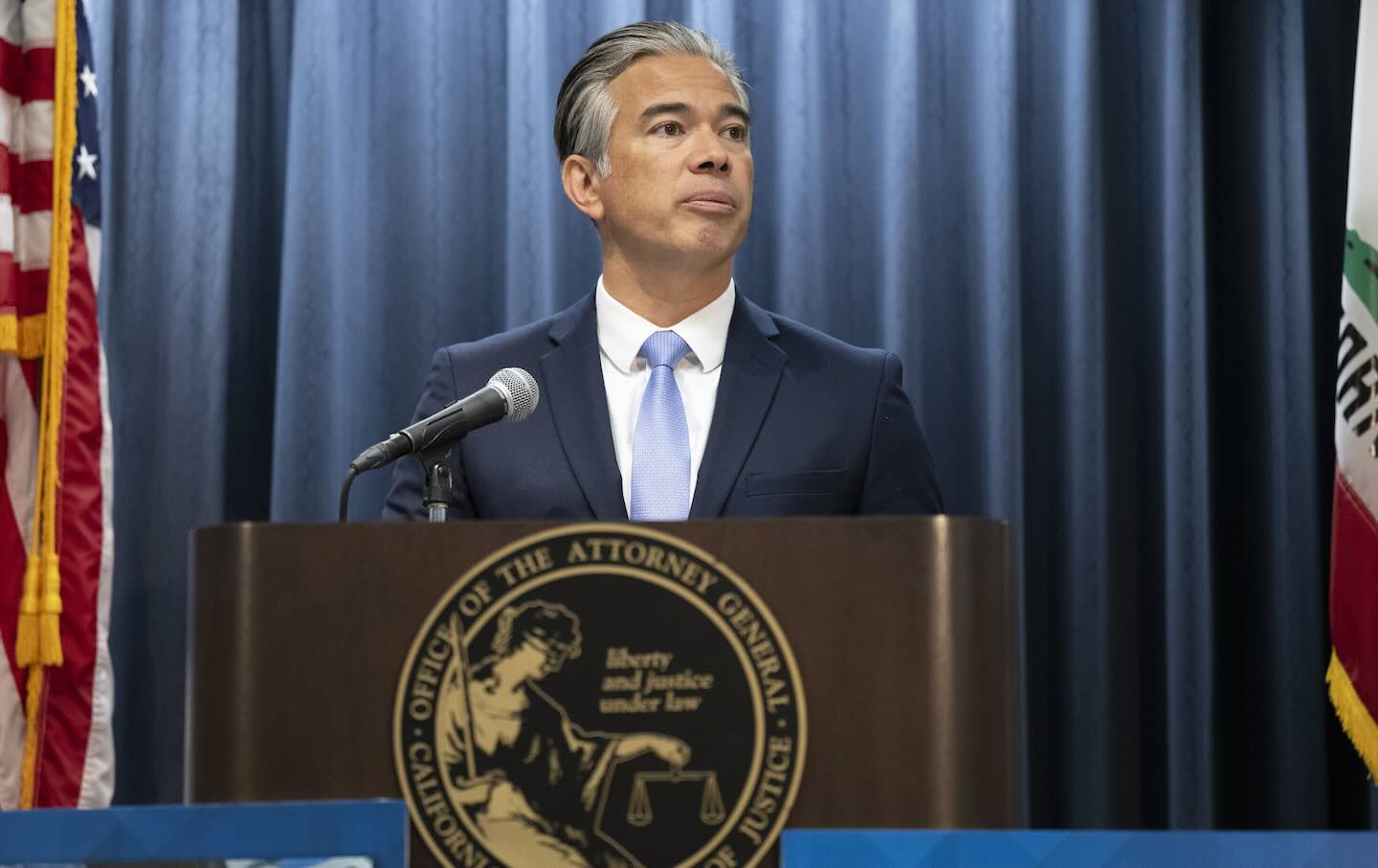
California Is Ready to Go Toe to Toe With Trump 2.0 California Is Ready to Go Toe to Toe With Trump 2.0
"We’ve thought about all the possibilities, and have prepared for every one of them," said Attorney General Rob Bonta, "and are ready to take action when there’s any unlawful acti...
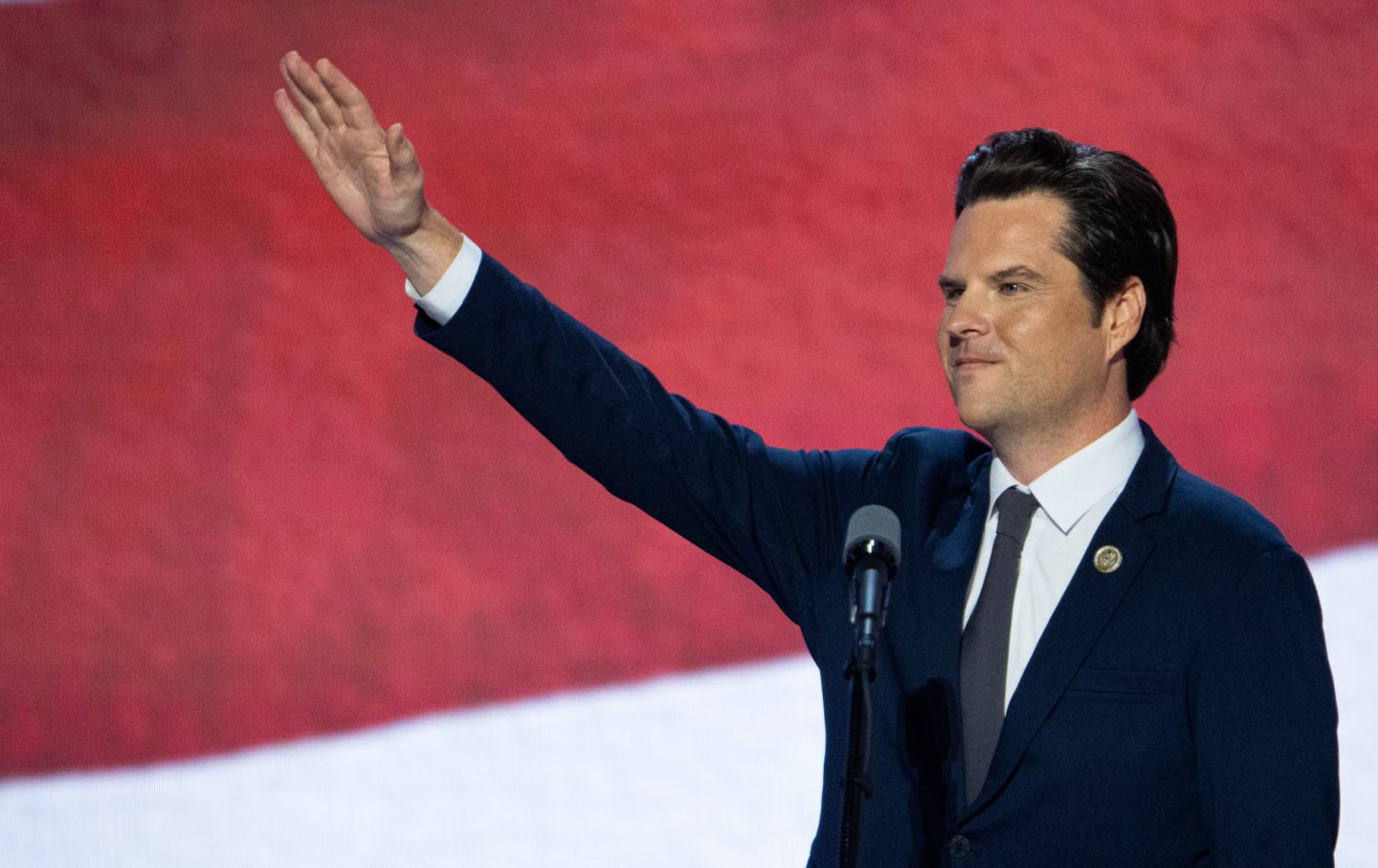
BREAKING: Matt Gaetz Quits, and Journalism Still Matters—a Lot BREAKING: Matt Gaetz Quits, and Journalism Still Matters—a Lot
Forty-five minutes after CNN contacted Trump’s attorney general nominee about additional allegations of sexual misconduct, he was done.

The Red Wave Didn’t Hit Statehouses in This Election The Red Wave Didn’t Hit Statehouses in This Election
State-level Democrats largely held their ground, even scoring key victories in battleground states—and under Trump, that’s going to matter.
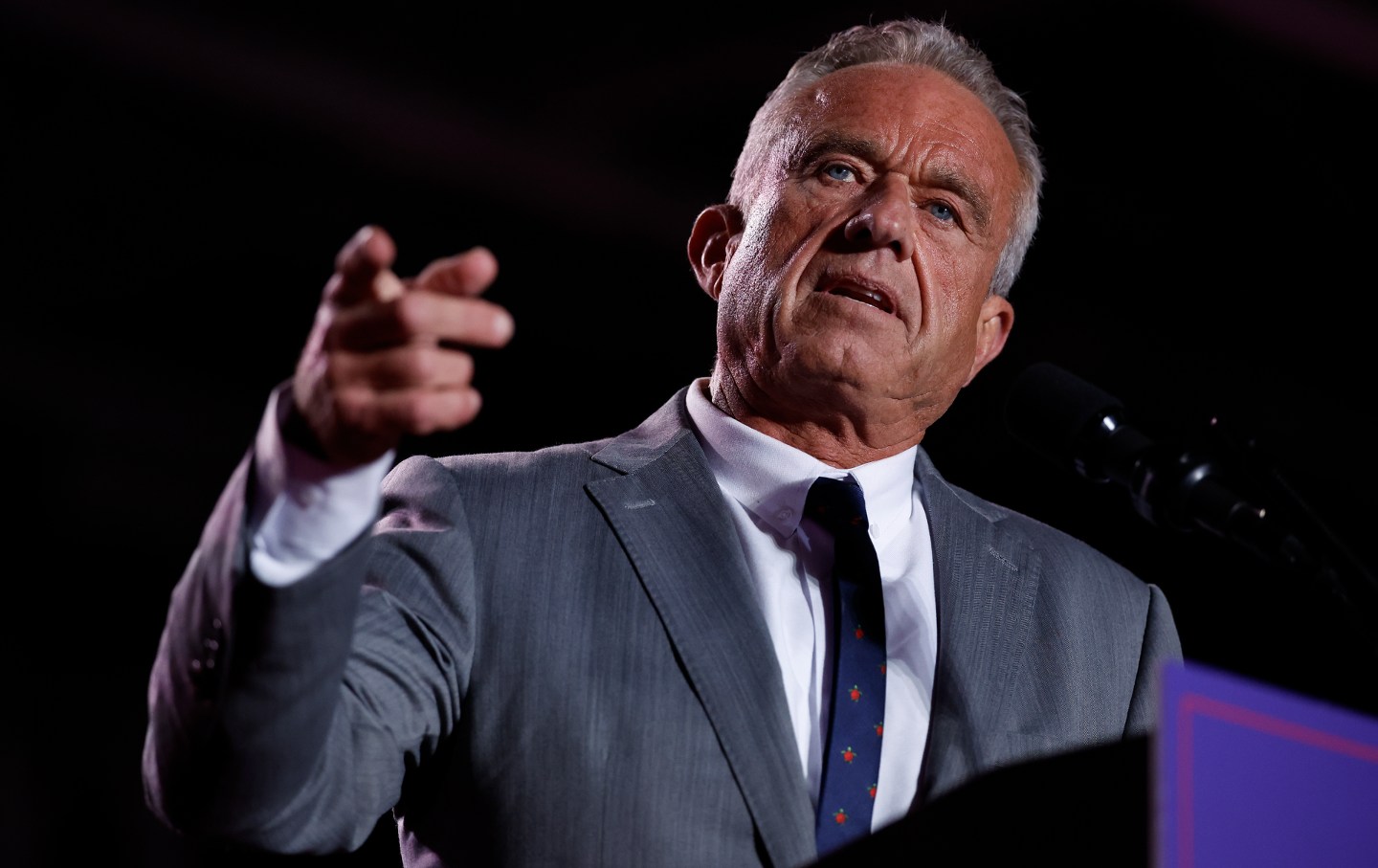
How Nominally Pro-Choice RFK Jr. Can Get Anti-Abortion Groups to Back His HHS Nomination How Nominally Pro-Choice RFK Jr. Can Get Anti-Abortion Groups to Back His HHS Nomination
He can pick a strident abortion opponent like Roger Severino, who wrote the Project 2025 chapter on HHS, as his number two.
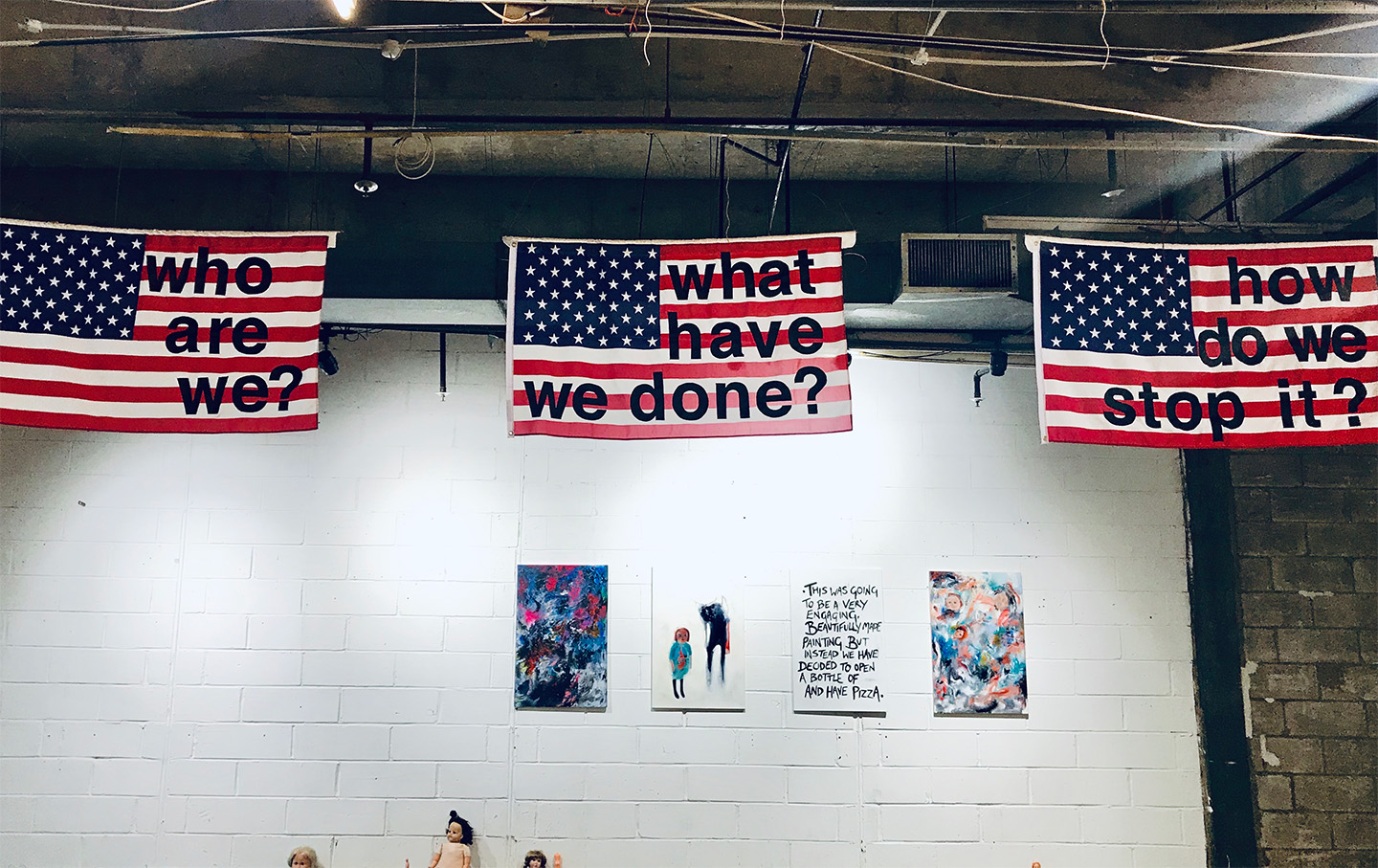
Red Flags Red Flags
The result of the presidential election reflects individual and collective responsibility.
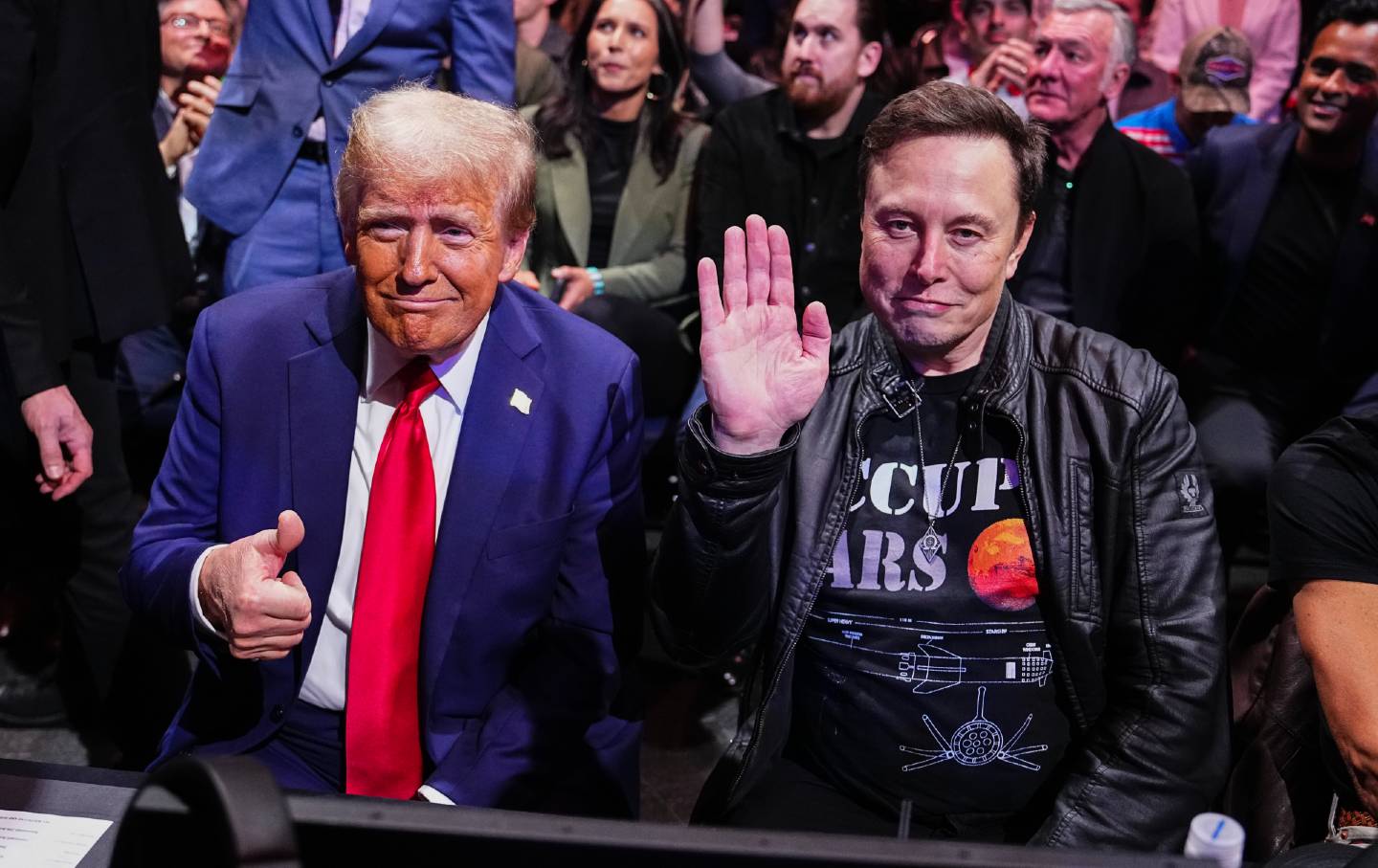
How Loyalty Trumps Qualification in Trump Universe How Loyalty Trumps Qualification in Trump Universe
Meet “first buddy” Elon Musk.


